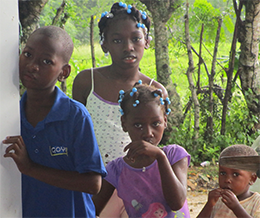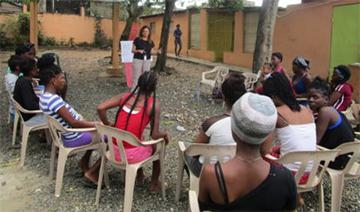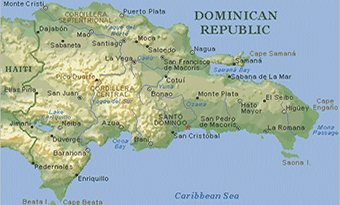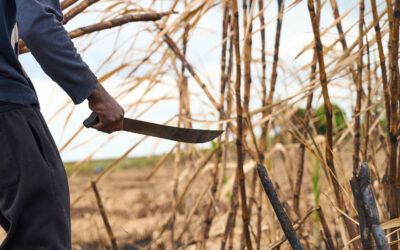Dominican Republic
Slavery in the Dominican Republic

The Dominican Republic (D.R.) is a source, transit and destination country for trafficking in persons (TIP).
Trafficking is pervasive in agricultural production for sugar, rice and coffee, the construction sector in expanding urban zones, domestic servitude, forced begging and tourism.
Our Solutions in the Dominican Republic
The goal of the project was to enable a multisector response and build local resistance within vulnerable communities in Santo Domingo, Santo Cristobal, and Puerto Plata.
Specific objectives:
- Enhance coordination among stakeholders and institutionalize victim-centered investigations and prosecution of TIP cases.
- Build resistance and resilience to labor and sex trafficking within vulnerable communities.
- Improve capacity of service provider organizations to identify victims and provide comprehensive quality services to survivors.

Activities:
- Institutional Response: IAWJ collaborated with their Dominican chapter to ensure a sustainable, institutional response. IAWJ also organized one conference in the D.R. to facilitate exchanges between judiciaries in the Caribbean through its network of member associations (including the Haitian and Caribbean Associations of Women Judges).
- Community Education and Organization: FTS worked with MUDHA and other D.R. partners to implement its Community Liberation Model in 13 communities. This included conducting participatory social mapping that identifies areas with the most vulnerable groups to trafficking, as well as the services available to survivors. FTS built MUDHA’s capacity to establish community-led anti-trafficking groups that educated and mobilized community members, and identified and protected victims. Through awareness activities, 3,000 people increased understanding of trafficking, half of the community groups were actively involved in anti-trafficking efforts, and at least 100 people identified themselves as victims of trafficking based on an increased understanding of their rights.
- Survivor Support: MUDHA and other local partners worked with local authorities to identify and improve local supportive services, establish a referral system so victims of trafficking receive services they need. Targeted services included legal assistance, shelter, health care and socioeconomic support. The community committee members collaborated with the judicial system; they identified and reportd/denounced traffickers.
Download the project description here.
Our Partners in the Dominican Republic
The Latest From Dominican Republic
The Fight Against Human Trafficking: The Pursuit of Justice in the Dominican Republic
The Fight Against Human Trafficking and the Pursuit of Justice in the Dominican Republic. In the lush landscapes of the Dominican Republic (DR), a country celebrated for its beautiful beaches and vibrant culture, lies an insidious issue that casts a dark shadow: human...
Masks and Food Arrive in the Dominican Republic in Time for Christmas
Great news! Your generous contributions to our “Everyone Deserves a Mask” campaign earlier this year helped us deliver vital COVID-19 personal protective equipment and nutrition parcels in the Dominican Republic, just in time for Christmas. Our Dominican Republic...
Stand Against Anti-Haitian Racism
For more than 150 years Haiti and the Dominican Republic have shared the island of Hispaniola. Their relationship, however, has not been pleasant. Sadly, this antagonism has led to the creation of racially biased policies against Haitians in the Dominican territory. ...


